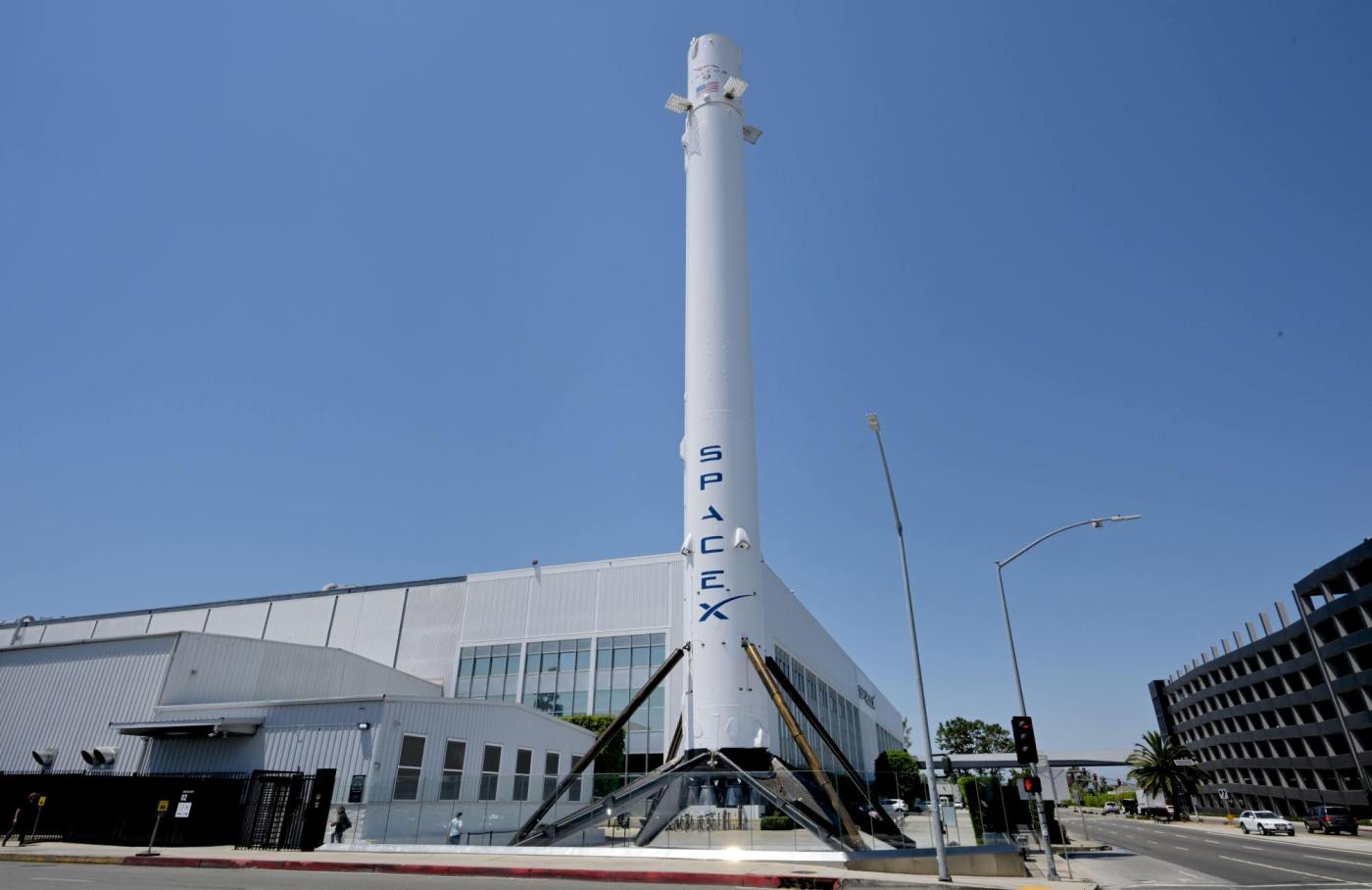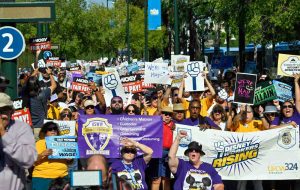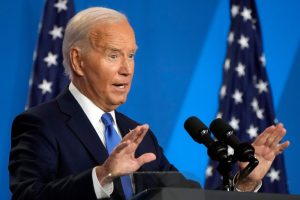The news that SpaceX, the massive aerospace company with an equally vast headquarters in Hawthorne, is apparently departing the South Bay for a new kind of south, caused an immediate stir among other local aerospace startups looking to hire — but also left locals with more questions than answers about how the move will impact the local economy.
Mercurial billionaire and SpaceX founder Elon Musk announced the company’s move from Hawthorne to Texas on Tuesday, July 16, in a post on X, formerly Twitter, rather suddenly.
But despite specific details on the move, other space startups have already been making a drive to recruit SpaceX workers disillusioned by Musk’s plans, offering them perks and inclusive office cultures.
On X, for example, asteroid mining company Astroforge Inc. replied to Musk’s tweet announcing his plans by stating they are hiring and based in Seal Beach — about 25 miles from SpaceX’s current headquarters.
Musk said his reason to relocate because of frustration over a new law in California related to transgender children in public schools.
The decision was in response to California Gov. Gavin Newsom signing a new state law, which prohibits school districts from requiring staff to notify parents of their child’s gender identification change.
Musk, who has increasingly leaned into far-right conservative rhetoric in recent years, called the governor’s decision a “final straw.”
The CEO of French aerospace company Latitude, Stanislas Maximin, responded by calling on “SpaceX employees misaligned with these values and looking to join an inclusive and highly ambitious rocket company in a great living city near Paris.”
Latitude would cover the cost of moving, visas, health care and find work for a spouse, Maximin said.
But it’s unclear whether such moves will be necessary.
That’s because besides a couple of posts on X, Musk and SpaceX officials have yet to provide any substantial details about what the relocation will actually entail.
SpaceX’s Hawthorne headquarters, a 1-million-square-foot sprawling campus, is home to more than just upper level admin workers — it’s also a production facility for some of the company’s flagship rockets.
Musk and the company have not said whether the entire campus — or other SpaceX facilities in Southern California — would be shut down and moved.
It is possible that the company has already prepared for an extensive and complicated move like that, though. SpaceX, after all, has been building out Starbase — a large facility in South Texas where SpaceX builds and launches its massive Starship rocket system — over the past several years.
Company officials did not respond to requests for comment on both Tuesday and Wednesday —so it is still all together unclear whether that is the company’s actual plan.
Hawthorne city officials, late Tuesday, issued a statement seeming to back up the uncertain nature of the relocation.
“Hawthorne has learned that SpaceX, one of our valued businesses, may potentially relocate its headquarters,” Mayor Alex Vargas said. “While this move would represent a significant change for our community, we remain committed to supporting our local economy and fostering growth.”
SpaceX, according to a report about Hawthorne’s finances during the 2022-23 fiscal year, provides nearly 7,000 jobs — or about 16% of total employment — in the city.
The second largest employer in the city, according to the report, was the Hawthorne School District, with 1,029 and 606 employees, respectively; the next is an Amazon Fulfillment Center in third place.
SpaceX has long been the largest employer in Hawthorne, at least dating back to the 2015-2016 fiscal year, which was the first time Hawthorne included employment levels by company in its annual financial reports.
But it’s unclear whether SpaceX’s plan to relocate the company’s headquarters will include moving its entire facility and all employees to Texas.
“That’s an incredibly expensive decision to make,” Christopher Thornberg, the founding partner of Beacon Economics, said in a previous interview earlier this week. “(And) people who live here, live here for a reason — and you’re not going to convince a lot of these people to get up and move to Texas, simple as that.”
There’s also precedent for Musk companies leaving California to Texas — such as Tesla.
Few employees were compelled to move during that transition, and the car company still maintains a huge presence in the Bay Area, including a factory in Fremont that employs thousands of people.
But it’s not just Musk companies. When Toyota announced that it was planning to vacate its Torrance headquarters — also to move to Texas — in 2014, the city faced backlash from both state officials and residents for failing to keep the business, and about 3,000 jobs, in town.
But several years following the company’s official exit in 2017, the actual material impact on Torrance and the South Bay economies have been minimal at best.
The city’s revenues, officials said previously, were not seriously impacted by Toyota’s departure. Torrance was more impacted by the loss of the company as a sponsor of community events.
That’s likely because the South Bay economy — and Torrance’s in particular — is diverse, with various large malls, company headquarters and industries, as opposed to relying on one single major business.
It might be a different story for Hawthorne, though, should SpaceX completely pull out of the city.
“SpaceX has been an integral part of our community,” Vargas, the Hawthorne mayor, said, “contributing to our local economy and helping to establish Hawthorne as a hub of technological innovation.”
Hawthorne has done its fair share to persuade SpaceX to stay local.
Related Articles
From modest beginnings and early hiccups, SpaceX learned to flourish in space ventures
Elon Musk says he’s moving SpaceX and X headquarters from California to Texas
Is Musk controversy responsible for Tesla’s struggles?
In 2012, for example, the city approved a deal with SpaceX to cap its annual business license fees at $260,000 a year.
Those fees, typically, were calculated based on gross tax receipts — meaning the more revenue the company generated, the higher fees it would have to pay.
That deal, agreed upon through 2022, essentially allowed SpaceX to maintain a flat tax rate despite its continued growth.
City leaders, at the time, cited the deal as a way to incentivize SpaceX — which was already fielding offers to move to other states, including Texas and Florida — to stay in Hawthorne.
Hawthorne also agreed to reduce building and planning fees for SpaceX should the company decide to expand its local facilities by 75% of the normal cost.
The city also included a corporate citizenship clause in that economic development deal — which allowed the city to use the SpaceX logo in its own branding to promote community engagement with the company and vice versa.
It’s unclear whether that deal was re-approved by the Hawthorne City Council after it expired in 2022. The city did not respond to requests for comment on Wednesday.
But given Hawthorne’s seemingly strong reliance on SpaceX as a driver of the local economy — it’s possible the company’s departure could have more lasting impacts on the city.
Long Beach, for example, is still recovering from the shut down of Boeing’s C-17 Globemaster production facility, which shut down after the Department of Defense terminated its contract for the aircraft in 2015.
The closure of the facility, according to a 2021 city report, resulted in the loss of about 1,158 direct jobs and another 3,781 jobs in the related supply chain.
Since the last C-17 left Long Beach in 2015, the city has spent years figuring out a plan to redevelop the area, an approximate three-mile corridor bordering the Long Beach Airport.
The Long Beach City Council, in 2021, finally approved a finished version of the Globemaster Specific Corridor Plan — a nearly 200-page document that will guide the area’s redevelopment into a “21st Century employment district,” according to the city.
But even with the economic crater left in the absence of Boeing’s Long Beach presence, the city’s aerospace industry managed to survive with the launch of Virgin Orbit in 2017 — which spurred several other space companies to plant their roots in Long Beach, including Rocket Lab and Vast Space — despite Virgin’s own bankruptcy delivering another blow to the city last year.
But for Hawthorne, time will tell how SpaceX’s departure will change the city’s economy, job market, and regional importance.
“Despite this potential move, Hawthorne remains resilient and optimistic about the future,” Vargas said. “The city is dedicated to attracting new businesses, supporting existing ones, and continuing to foster an environment of innovation and opportunity.”
Bloomberg News contributed to this report.












